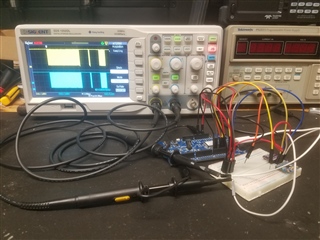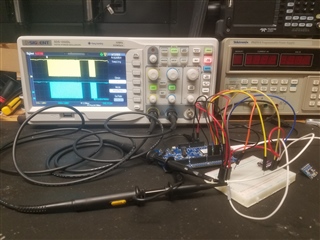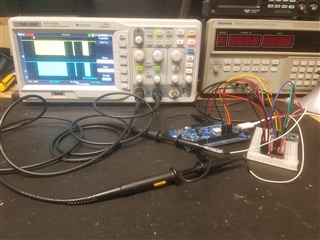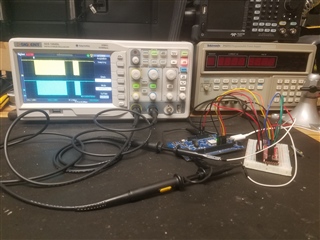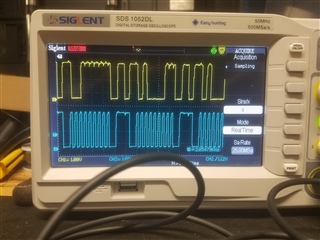I've been trying to get TWI Sensor to work on 3rd party boards for a while now and no luck.
The code I'm using is only slightly modified, (1) it explicitly defines .scl and .sda pins in main.h
void twi_init (void)
{
ret_code_t err_code;
const nrf_drv_twi_config_t twi_config = {
.scl = 27,
.sda = 26,
.frequency = NRF_DRV_TWI_FREQ_100K,
.interrupt_priority = APP_IRQ_PRIORITY_HIGH,
.clear_bus_init = false
};
err_code = nrf_drv_twi_init(&m_twi, &twi_config, NULL, NULL);
APP_ERROR_CHECK(err_code);
nrf_drv_twi_enable(&m_twi);
}
(2) it takes the scanner that happens once on startup and throws it in the loop so I can see the scanner even if I don't open the COM port when the program loads:
while (true)
{
for (address = 1; address <= TWI_ADDRESSES; address++)
{
err_code = nrf_drv_twi_rx(&m_twi, address, &sample_data, sizeof(sample_data));
if (err_code == NRF_SUCCESS)
{
detected_device = true;
NRF_LOG_INFO("TWI device detected at address 0x%x.", address);
}
NRF_LOG_FLUSH();
}
if (!detected_device)
{
NRF_LOG_INFO("No device was found.");
NRF_LOG_FLUSH();
}
nrf_delay_ms(500);
}
This code has worked well and successfully identified two separate I2C sensors when it was flashed to the nRF52832 that is on the nRF52 DK.
However, I've tried flashing it both to the Sparkfun nRF52832 Breakout as well as the BT832, the latter of which is listed as an official 3rd Party Module on the Nordic website. Both 3rd party boards are unable to scan any I2C slaves, and the COM port just prints "No device was found." I have confirmed that pins 26 and 27 on the third party boards are creating pulses on an oscilloscope, and to me the pulses look the same as the ones created by the nRF52832 that works correctly on the DK. I have also changed the .scl and .sda pins to other ones on the board (I've tried 9/8, 15/14, ...) and have seen those pins I assigned as .scl and .sda pulsing on an oscilloscope, but again the Third Party Modules don't recognize the I2C device and report "No device was found."
Does anyone have advice on what I can try to fix this and get TWI Scanner to work on a 3rd Party Module?
The full project and code is attached below, I was working out of "nRF5_SDK_15.2.0_9412b96\examples\peripheral\twi_scanner\pca10040\blank\ses"



